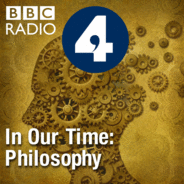
Kultur & Gesellschaft
In Our Time: Philosophy Folgen
From Altruism to Wittgenstein, philosophers, theories and key themes.
Folgen von In Our Time: Philosophy
phonostar hat keine Informationen zu diesem Inhalt.
Gehe auf die Website des Senders um weitere Informationen zu erhalten.